What is our primary use case?
I support multiple clients within the UK, the EMEA region, the US, and now in Asia Pacific as well. I specialize in Check Point firewalls. I design and secure their data centers, their on-premises solutions, or their businesses security.
The firewalls are mostly on-premise because most of our clients are financial organizations and they have strict compliance requirements. They feel more secure and have more control when things are on-premise in the data center. However, there are use cases where I have helped them to deploy Check Point solutions in the cloud: AWS, Azure, and in Google as well. But cloud deployments are very much in the early stages for these clients, on a development or testing basis. Most of the production workloads are still on-premise in data centers.
Most of my customers are still using R77.30, and they are on track to upgrade from that to R80, which is the current proposed version by Check Point.
How has it helped my organization?
One of our customers has just recently been attacked by malware and internal DoS attacks, and they have a multi-vendor, multi-layer firewall approach. The internal firewalls are Check Point. The great thing about Check Point is that because of its central architecture, you can very quickly pinpoint where the attacks are coming from. It gives you comprehensive reporting when the attacks start and when they've stopped, so you can see the complete, end-to-end picture: where the point of attack is, at what time, and what host. They can track all of that.
However, in parallel, that customer is using other firewalls which have no visibility. One of the main advantages of having Check Point firewall is definitely that it gives you absolute in-depth visibility.
What is most valuable?
Among the valuable features are antivirus, URL inspection, and anti-malware protection. These are all advanced features.
One of the great advantages of having Check Point as a firewall is that all of these are software blades, so you can buy a license or subscription and enable them and get the security up and running. With other firewalls, it's a completely different agenda, meaning some of them require hardware modules, and some of them have a complex way of adding the licensing, etc. Check Point definitely has a great architecture, where you can just enable the software blades and deploy a secure service. Overall, it provides ease of deployment and ease of use.
What needs improvement?
The area it needs improvement is the SandBlast Agent. It receives a file, or if it detects a Zero-day attack, it takes the file and analyzes it, either on-premise or in the Check Point Cloud, and then it reports back whether the file is secure or non-secure, or is unknown. That particular area definitely needs a bit more improvement, because there is a delay. That's one of the main complaints for most of our customers. Or if it is quick, then it's very complex. For example, if they have received a file which is "unknown" or has Zero-day attack malware, sometimes it doesn't get analyzed properly or it's locked into the cloud. So there are various small issues with the product that need possible improvement.
The SandBlast product on its own is a very good concept, and it works absolutely brilliantly. However, when you integrate it with existing firewalls, it just doesn't play very well.
The cloud solution is quite straightforward because it seems the SandBlast solution was designed, initially, for cloud deployments, where you've got multiple clouds or multiple vendors, and you are receiving files from different points. And on the cloud edge, for example in AWS, if you have Check Point sitting there, it works very well if you're running a virtual firewall. However, if it's on-premise and it's a dedicated appliance, then the performance is slightly different and the way it works is very different. So where it needs improvement is where it's an appliance-based solution rather than a software or cloud-based solution.
If I am using SandBlast on a virtual appliance — for example, I've got Check Point virtual appliances in AWS, and Azure as well, for a customer — those virtual appliances work absolutely fine as a service, as does SandBlast as a service. However, if it's an appliance, if it's a dedicated firewall on-premise in a data center and you add SandBlast as a software service, the integration is not that straightforward, so the experience is very different.
It seems like they were possibly built by different teams, independent of each other.
For how long have I used the solution?
I've been using Check Point firewalls for about 16 years. I am the main network or security lead and I have four other engineers who report to me. They also do design and deployment.
I work with approximately 40 companies that utilize Check Point.
What do I think about the stability of the solution?
Check Point firewalls are very stable. One good thing about Check Point is that they do rigorous testing internally before releasing updates, which is something I have not found with any other firewall products. With most of the other firewall products, when they release something, it's like the customer becomes the guinea pig for that particular version, whether a minor or a major update. However, with Check Point, you can see all the white papers and what ways they have tested a minor or major upgrade of the software version, and what the performance was like. What are their known issues and is somebody working on them or not?
So the software releases are very stable and you have visibility into how they operate and what the known issues are, so you know whether you should go ahead with them or not. And in case there is a problem, the support is excellent. You can reach out to Check Point and say, "Look, I've done the software upgrade and I'm experiencing these problems. How can I deal with them?" They are there to help you out.
There are times when we have problems in terms of software or hardware defects. We have sustained downtime, but most of the architecture I design is resilient, so if one device is down, the other one is working fine. Then in the background, I or my support team will deal with Check Point directly, to get a replacement. They're definitely quick to respond and very efficient.
In the past, we had a lot of problems with licensing, specifically, but Check Point has redone the whole way they do licensing. It's very quick now, and very efficient.
What do I think about the scalability of the solution?
Check Point firewalls are extremely scalable. Recently, I deployed Check Point in an AWS cloud solution for one of my clients, and it's been absolutely excellent in handling growth. They've grown from 10,000 users to a million users. The way Check Point has advertised the product, it is supposed to be highly scalable, which means it grows as your demand grows, and that has been the case.
Recently we have set up a test case where we are moving over management servers from on-premise to a Check Point-provided Infinity cloud solution. We are still at the testing phase but, overall, it's been a great experience so far.
How are customer service and technical support?
The teams we deal with within Check Point are extremely knowledgeable. They know how to understand the background of the problem, and they're very good about articulating how we deal with the issue, whether it's a minor software upgrade issue or it's a major failure of the hardware itself. They know where to look for the right stuff. The key point is they're very knowledgeable and very technical. And if somebody doesn't have the technical capability, they will definitely help you out to make sure you get to the bottom of the problem.
Which solution did I use previously and why did I switch?
In the past, most of the customers I've worked with have used different firewall vendors, such as Cisco, Palo Alto, and Juniper.
I've recently seen deployments where customers have tried to move from Cisco ASA to Cisco Firepower and the deployment has gone horribly wrong because the product has not been tested by Cisco very well and is not a mature product. I've gone in and reviewed their business requirements and technical requirements and, based on that, I've recommended Check Point and done the design and deployment. They've absolutely been happy with the solution, how secure and how capable it is.
We use Check Point across multiple types of customers, such as financials, retail, and various other public and private sector organizations. I review their security architecture, which is firewall specific and, based on that, I have recommended Check Point. In most cases, I've managed to convince them to go ahead with Check Point firewalls as a preferred secure firewall solution.
The main reason is that Check Point is far ahead in the game. They're definitely the market leader. They are visionaries when it comes to security. Another reason is that a lot of firewall architecture starts from the firewall itself, which is the local firewall. It can easily be hacked and manipulated. However, the Check Point architecture, out-of-the-box, is very secure. They have a central Management Server and all of the firewalls are managed through that one central point. So in case somebody breaks into your firewall, the firewall is encrypted; they will delete the database. The architecture is secure by default. The good thing is that other firewall vendors have realized this and they've started to copy the same system that Check Point has used for the past 20 years now.
How was the initial setup?
When working with the Check Point team on deployment, they're really helpful and very talented people. When you speak to other firewall vendors, they just think about the firewall from their point of view. The good thing about Check Point engineers, or technical staff, or even management staff, is that they understand what the requirements of business are and how they can improve or align the proposed solution. Overall, Check Point staff are very knowledgeable, they understand different industries, and they understand the product very well. That's definitely a competitive edge compared to other firewalls.
Once the design is done, for something simple the deployment can take half a day, whereas for a complex deployment in a data center it can take about five days.
Our implementation plan is divided into different phases. Phase One might be the physical cabling of the firewall device itself. Phase Two would be the logical setup, which means defining the interfaces and the virtual setup of the firewall itself. The final phase would be to bring it online in parallel with production, in a non-prod service, and test it to ensure it works as per the design.
What was our ROI?
A customer I'm working with right now was running with Check Point and they wanted to move to Fortinet firewalls. However, when I worked with them on the design to upgrade the existing Check Point firewalls, what we worked out was that even though the Fortinet might have seemed like a cheaper option, it didn't have the security capabilities that Check Point is offering. On that basis, the customer signed off on a project for upgrading their existing firewalls, on-premise and cloud, from R77.30 to R80.10.
What's my experience with pricing, setup cost, and licensing?
It can be expensive, but it's value for money. What you pay for is what you get. You can go down in price and buy some cheap firewalls, but you're not going to get great support and you're not going to get the level of protection you need. With Check Point you get all of that.
Which other solutions did I evaluate?
With Juniper, one of the biggest downsides is support. The support portal is slow and I won't say the staff is competent in terms of understanding. They're very disconnected internally. What I mean is that the team working on the software development of the firewall has no interface with the support teams that are handling day-to-day TAC cases. They definitely struggle when it comes to understanding challenges, problems, and incidents with the firewalls.
In the past, Juniper firewalls were good, but recently the security offering has just not been there. They don't have anything like SandBlast from Check Point. They don't have up-to-date Zero-day attacks control. They're still running a very old architecture. They can do things like antivirus and URL proxy, but those are very simple features. They have none of the advanced feature set that Check Point has.
Palo Alto is very competitive with Check Point when it comes to security. However, one of the challenges with Palo Alto is that, overall, the solution can be extremely complex and expensive. That is one thing I've heard from customers again and again. Either they have existing Palo Altos or they plan to go to Palo Alto, but when they do a comparison with Check Point, what they find is that the overall value with Check Point is much greater than with Palo Alto firewalls.
What other advice do I have?
If you're looking to implement Check Point as a security solution, definitely do your homework. Do some research, not just in terms of firewalls, but overall security architecture. Which ones are the leaders in the field? Which ones are there to deliver what they promise? And overall, how does the architecture work? Is it secure or not? And does it come from a team that understands how to support the solution itself? Are they consistent? Look at their track record for the past 10 or 15 years, or are they a new player? If they are, you don't know whether they're going to stay in the game or not. A good thing about Check Point is that its core product is security. They've been doing it day in and day out. You know they're there to stay in the game. You can trust them.
Check Point is a proven solution. A lot of customers and clients already rely on it. And for the Next Generation Firewalls, they're coming up with new features as security threats become known.
If somebody wants a secure and stable environment, Check Point is definitely the leader to go to; definitely the number-one choice. It's not only what it says on the box. In reality, I've worked with hundreds of banks and they're happy with the product because it works; in practice, it works. That's the main thing.
Disclosure: PeerSpot contacted the reviewer to collect the review and to validate authenticity. The reviewer was referred by the vendor, but the review is not subject to editing or approval by the vendor.








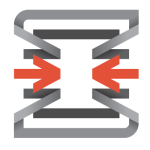




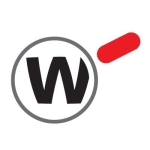
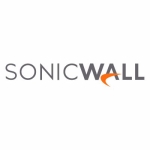

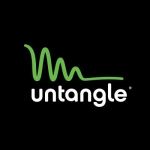
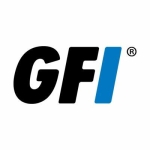

We have been using Check Point for the last 14+ years since it was called Nokia Check Point. It is a wonderful product with wonderful support. Technology advancement is also part of the life cycle.